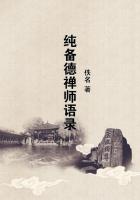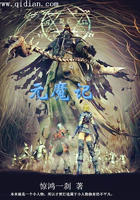And it was just as clear that in the struggle between landed property and the bourgeoisie, no less than in the struggle between the bourgeoisie and the proletariat, it was a question, first and foremost, of economic interests, to the furtherance of which political power was intended to serve merely as a means. Bourgeoisie and proletariat both arose in consequences of a transformation of the economic conditions, more precisely, of the mode of production. The transition, first from guild handicrafts to manufacture, and then from manufacture to large-scale industry, with steam and mechanical power, had caused the development of these two classes. At a certain stage, the new productive forces set in motion by the bourgeoisie -- in the first place the division of labor and the combination of many detail laborers [Teilarbeiter] in one general manufactory -- and the conditions and requirements of exchange, developed through these productive forces, became incompatible with the existing order of production handed down by history and sanctified by law -- that is to say, incompatible with the privileges of the guild and the numerous other personal and local privileges (which were only so many fetters to the unprivileged estates) of the feudal order to society.
The productive forces represented by the bourgeoisie rebelled against the order of production represented by the feudal landlords and the guild-masters.
The result is known, the feudal fetters were smashed, gradually in England, at one blow in France. In Germany, the process is not yet finished. But just as, at a definite stage of its development, manufacture came into conflict with the feudal order of production, so now large-scale industry has already come into conflict with the bourgeois order or production established in its place.Tied down by this order, by the narrow limits of the capitalist mode of production, this industry produces, on the one hand, an ever-increasingly proletarianziation of the great mass of the people, and on the other hand, an ever greater mass of unsalable products. Overproduction and mass misery, each the cause of the other -- that is the absurd contradiction which is its outcome, and which of necessity calls for the liberation of the productive forces by means of a change in the mode of production.
In modern history at least it is, therefore, proved that all political struggles are class struggles, and all class struggles for emancipation, despite their necessarily political form -- for every class struggle is a political struggle -- turn ultimately on the question of economic emancipation. Therefore, here at least, the state -- the political order -- is the subordination, and civil society -- the realm of economic relations -- the decisive element. The traditional conception, to which Hegel, too, pays homage, saw in the state the determining element, and in civil society the element determined by it. Appearances correspond to this. As all the driving forces of the actions of any individual person must pass through his brain, and transform themselves into motives of his will in order to set him into action, so also all the needs of civil society -- no matter which class happens to be the ruling one -- must pass through the will of the state in order to secure general validity in the form of laws. That is the formal aspect of the matter -- the one which is self-evident. The question arises, however, what is the content of this merely formal will -- of the individual as well as of the state -- and whence is this content derived? Why is just this willed and not something else? If we enquire into this, we discover that in modern history the will of the state is, on the whole, determined by the changing needs of civil society, but the supremacy of this or that class, in the last resort, by the development of the productive forces and relations of exchange.
But if even in our modern era, with its gigantic means of production and communication, the state is not an independent domain with an independent development, but one whose existence as well as development is to be explained in the last resort by the economic conditions of life of society, then this must be still more true of all earlier times when the production of the material life of man was not yet carried on with these abundant auxiliary means, and when, therefore, the necessity of such production must have exercised a still greater mastery over men. If the state even today, in the era of big industry and of railways, is ont the whole only a reflection, in concentrated form, of the economic needs of the class controlling production, then this must have been much more so in an epoch when each generation of men was forced to spend a far greater part of tis aggregate lifetime in satisfying material needs, and was therefore much more dependent on them than we are today. An examination of the history of earlier periods, as soon as it is seriously undertaken from this angle, most abundantly confirms this. But, of course, this cannot be gone into here.
If the state and public law are determined by economic relations, so, too, of course, is private law, which indeed in essence only sanctions the existing economic relations between individuals which are normal in the given circumstances. The form in which this happens can, however, vary considerably. It is possible, as happened in England, in harmony with the whole national development, to retain in the main the forms of the old feudal laws while giving them a bourgeois content; in fact, directly reading a bourgeois meaning into the feudal name. But, also, as happened in Western continental Europe, roman law, the first world law of a commodity-producing society, with its unsurpassably fine elaboration of all the essential legal relations of simple commodity owners (of buyers and sellers, debtors and creditors, contracts, obligations, etc.) can be taken as the foundation.















